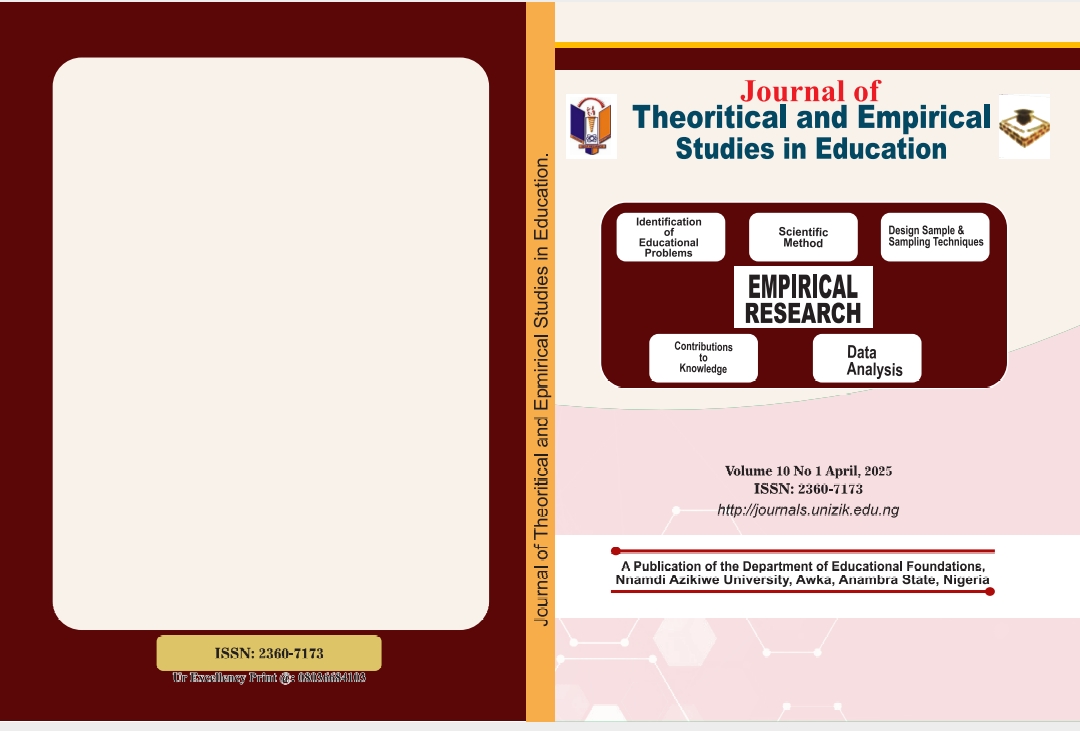Exploring The Experiences of Students with Truancy Behaviour During a Peer Mentorship Program
A Qualitative Analysis
Keywords:
Peer Mentorship, Truancy, Focus Group, School Engagement, Student Development, Secondary EducationAbstract
This study explores the experiences of students with truancy behaviour participating in a peer mentorship programme designed to reduce truancy and enhance school engagement in secondary schools in Awka North Local Government Area, Nigeria.
Using a qualitative phenomenological approach, the researcher collected data from focus group discussions with 12 mentees and 5 mentors who participated in a sixweek quasi-experimental intervention. The study employed purposive sampling method to select the participants. Interview questions were generated for the study to use as data. The interviews were conducted with mentees to explore their personal perspectives on the peer mentorship programme, focusing on changes in attendance, engagement, and challenges encountered. The collected data were analyzed using thematic analysis, which revealed substantial improvements in school attendance, classroom participation, self-discipline, and self-confidence among mentees which showed success in the peer mentorship intervention programme. Despite challenges such as peer pressure, privacy concerns and adapting to increased school work that
were experienced during the course of the mentorship, participants reported overwhelmingly positive experiences. The findings illustrate the potential of peer mentorship as an effective intervention for addressing truancy and fostering holistic student development. This study emphasizes the importance of mentor training, privacy protocols, and inclusive school cultures in optimizing programme outcomes. The insights contribute to the growing body of evidence on the role of peer mentorship in secondary education.




